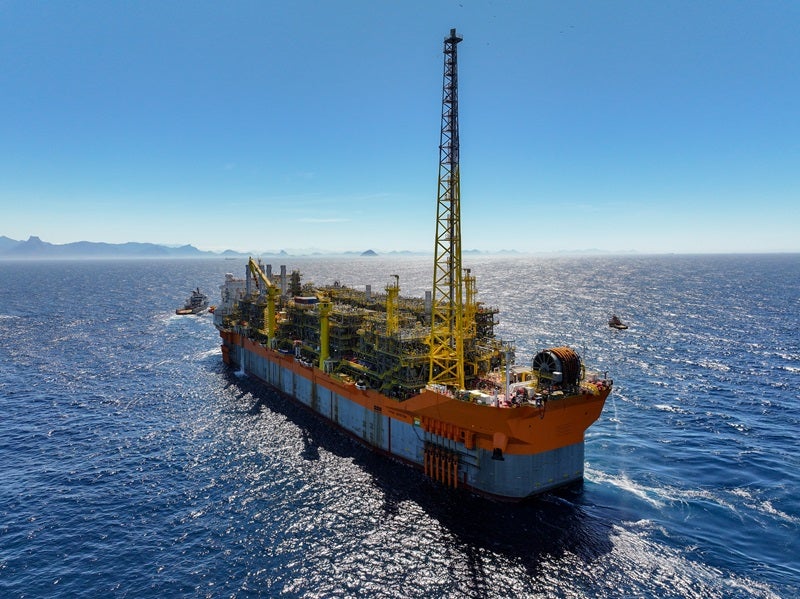
Petrobras and its partners have started production from the second phase of development of the Mero field (Mero-2 project) located on the Libra block in the pre-salt area of Brazil’s Santos Basin.
Sanctioned in mid-2019, Mero-2 is producing through the Sepetiba floating production, storage, and offloading unit (FPSO) vessel.
Chartered from SBM, FPSO Sepetiba has a production capacity of 180,000 barrels of oil per day (b/d) and a compression capacity reaching up to 12 million cubic metres of gas. It is now the third producing unit in the Mero field, out of a total of five, with two of them to be installed in the future.
The Sepetiba vessel has been designed to eliminate routine flaring, thereby minimising greenhouse gas emissions. The gas generated is reinjected into the reservoir.
It is integral to a production system, which encompasses the drilling and preparation of eight production wells and eight water and gas injection wells. These wells are currently in the process of being interconnected to the FPSO.
Following the commissioning of the Mero-2 project, the overall production capacity of the Mero field is set to become 410,000 barrels per day.
Ongoing construction activities are in progress for two supplementary development phases, namely Mero-3 and Mero-4, each targeting a production capacity of 180,000 barrels per day. Anticipated to commence operations in 2025, these additional phases will further contribute to the overall output of the Mero field.
In the span of one year, from December 2022 to December 2023, Petrobras commenced production with five FPSOs.
Petrobras engineering, technology and innovation director Carlos José Travassos said: “We overcame the challenge of putting five units into operation this year alone. This demonstrates Petrobras’ technical capacity, our intention to invest in the growth of production and, consequently, in the development of Brazil.”
The Brazilian state-owned energy company is the operator of the Mero field with a stake of 38.6%. Its other partners are Shell Brasil (19.3%), TotalEnergies (19.3%), CNPC (9.65%), CNOOC (9.65%), and Pré-Sal Petróleo (PPSA), which has a 3.5% stake in the unitised field.
TotalEnergies chairman and CEO Patrick Pouyanné said: “The production start-up of Mero-2 is a new milestone for TotalEnergies in Brazil, a key growth area for the Company. With its vast resources and world-class productivity, the Mero development delivers low cost and low emission oil production, in line with the strategy of our Company.”




